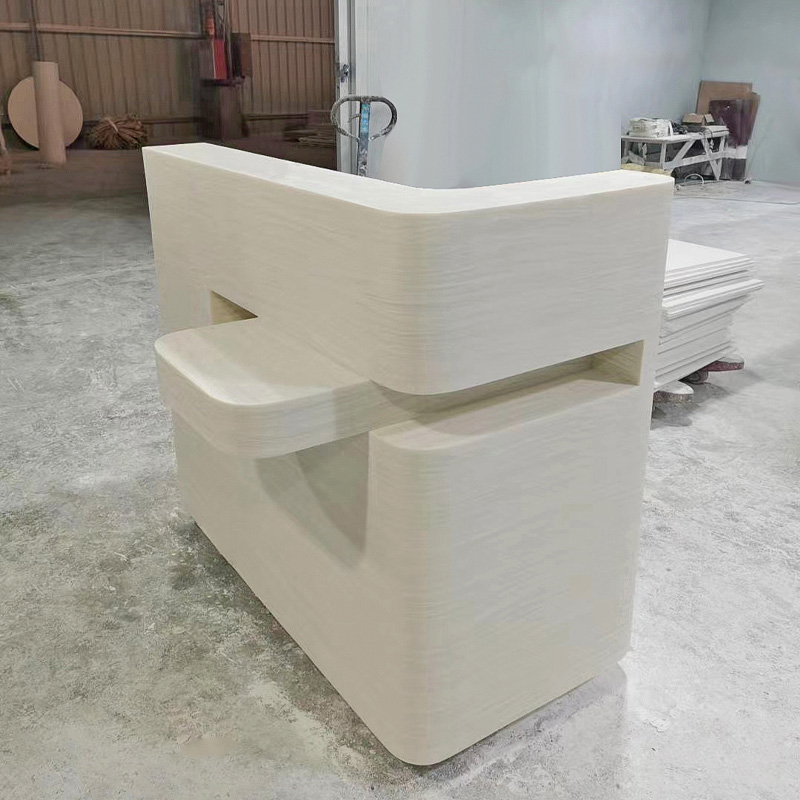
Engineered stone countertops, also known as quartz countertops, are a man-made surface material composed of approximately 90-95% crushed natural quartz combined with 5-10% polymer resins, pigments, and other additives. This composition creates an exceptionally durable and non-porous surface that outperforms many natural stones in terms of consistency and maintenance requirements. The manufacturing process involves blending the quartz aggregates with resins under high pressure (approximately 100 tons per square meter) and curing at temperatures around 85-90°C (185-195°F) to create solid slabs.

Durability: Engineered stone ranks 7 on the Mohs hardness scale, making it highly resistant to scratches from everyday kitchen utensils (typically 3-5 on the Mohs scale).
Heat Resistance: Can withstand temperatures up to 150°C (302°F) for short periods, though prolonged exposure may cause discoloration.
Stain Resistance: With a water absorption rate of 0.02-0.04% (ASTM C97 test standard), it's virtually non-porous compared to granite (0.05-0.40%) or marble (0.10-0.50%).
Flexural Strength: Measures approximately 50 MPa (7,250 psi), significantly higher than natural stone alternatives.
UV Stability: Most engineered quartz maintains color stability with a Delta E value <3 after 1,000 hours of accelerated UV exposure testing.
Custom Engineered Stone Countertops are versatile solutions for both residential and commercial applications:
Kitchen Countertops: Engineered Stone Kitchen Countertop most common application, with standard thicknesses of 2cm (0.75") or 3cm (1.25")
Bathroom Vanities: Engineered Stone Bathroom Vanity Top Often used in 1.2cm (0.5") thickness for vertical applications
Backsplashes: Typically matching the countertop material for seamless integration
Fireplace Surrounds: Utilizing the material's heat-resistant properties
Reception Desks: Withstands high traffic while maintaining appearance
Laboratory Surfaces: Benefiting from the non-porous nature (bacterial growth resistance <0.1% per NSF/ANSI 51 testing)
Restaurant Countertops: Meeting health code requirements with easy sanitation
Retail Display Areas: Available in large slab sizes up to 3.3m x 1.65m (130" x 65")
Proper care ensures the longevity of engineered stone surfaces:
Use pH-neutral cleaners (6-8 pH range) and soft cloths
Avoid abrasive pads or cleaners with Mohs hardness >7
Wipe spills promptly, especially those with pH <2 or >12
Reseal not typically required due to non-porous nature
For high-use areas, apply a quartz-specific polish every 12-18 months
Inspect for potential damage annually
Use trivets for items hotter than 150°C (302°F)
Avoid cutting directly on surface to prevent resin layer abrasion
Protect from prolonged UV exposure to prevent potential fading (varies by manufacturer)
Professional installation ensures optimal performance:
Requires minimum 5mm expansion joints for thermal movement
Maximum overhang without support: 30cm (12") for 2cm thickness, 45cm (18") for 3cm thickness
Substructure must provide <1.5mm deflection under 150kg point load
Cutting requires diamond-tipped blades (continuous rim type) with water cooling
Modern engineered stone offers several sustainable advantages:
Contains 20-40% recycled content in some premium products
Manufacturing waste is 95% recyclable back into production
Certified by NSF/ANSI 51, Greenguard Gold for indoor air quality
Typical lifespan of 25+ years reduces replacement frequency
FAQ
What is an Engineered Stone Countertop?
Engineered Stone Countertops are surfaces made from a combination of approximately 90-95% crushed natural quartz crystals, resins, and pigments, resulting in a durable and aesthetically pleasing material.
What are the benefits of using Engineered Stone Countertops?
Benefits include high durability, scratch and stain resistance, a wide variety of designs, non-porous surfaces for easy maintenance, and no need for sealing.
How do Engineered Stone Countertops compare to natural stone?
Engineered stone offers greater uniformity in appearance, is more resistant to stains and bacteria, and typically requires less maintenance than natural stone options like granite or marble.
Can Engineered Stone Countertops be repaired if damaged?
Minor scratches and chips can often be repaired by professionals, but significant damage may require replacement of the affected section.
Are Engineered Stone Countertops heat resistant?
While they are resistant to moderate heat, it's advisable to use trivets or hot pads under hot cookware to prevent potential damage to the resin.
What colors and patterns are available for Engineered Stone Countertops?
Engineered stone is available in a vast array of colors and patterns, including options that mimic natural stone like granite and marble, allowing for design flexibility.
How should I clean Engineered Stone Countertops?
Regular cleaning can be done with mild soap and water or a non-abrasive cleaner. Avoid harsh chemicals or abrasive pads that can damage the surface.
Is installation of Engineered Stone Countertops complicated?
Installation should be performed by professionals due to the weight and need for precise measurements, cutting, and secure placement.
How do Engineered Stone Countertops contribute to sustainability?
Many manufacturers use recycled materials in their production process, and the durability of engineered stone reduces the need for frequent replacements, making it a more sustainable choice.
What is the expected lifespan of Engineered Stone Countertops?
With proper care and maintenance, engineered stone countertops can last many years, often exceeding 15-20 years, making them a long-term investment for homes and businesses.